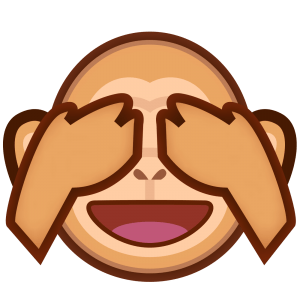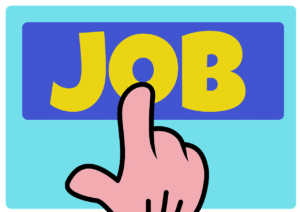Despite the fact that the recession began in 2008, current unemployment statistics show that we still have a long way to go. According to BBC business statistics, unemployment is a lagging indicator. In other words, unemployment began to rise dramatically after the recession began; it didn’t rise immediately. It was a few months after the start of the recession before employment levels began to reflect the economic downturn. When the recession hit, unemployment figures were at 1.6 million ( a bit over 5 percent of the population). It wasn’t until the end of 2011 when unemployment peaked at almost 2.7 million. This was the highest level of unemployment for 17 years. Thankfully, things are looking up a bit. At the beginning of January of this year, unemployment was at 1.86 million. Things have evidently become better in terms of employment prospects. However, there are still many challenges facing job seekers and preventing them from getting a job. (see footnote 1) Some of these challenges, and possible solutions, are outlined below:
Unrealistic Ambitions
In a survey by Yougov on the most desirable jobs to have in Britain today, the results are astonishing. The top 3 most desirable jobs are author, librarian and academic. There is a marked disparity in the jobs people would love to do and the jobs that are available. Author, a particularly unrealistic one, won the top slot. Other jobs which appeared on the list include lawyer, TV presenter, and Hollywood movie star. While it is just an informal survey, it still reflects the fact that people can often have unrealistic goals. Of course it’s nice to say ‘believe in yourself and you can be anything’ but life just isn’t like that, let’s face it. Not to rain on anyone’s parade, but the chances of becoming a Hollywood movie star are highly unlikely. Likewise, we must consider that people often glamorise certain jobs as being better than they actually are. Being an author, for example, takes years and years of being absolutely broke and receiving rejection after rejection. When people say they want to be an author, they probably have someone like J.K. Rowling in mind, not the people I know who self-publish on Amazon for pittance or have toiled over a book they simply can’t get published. It is imperative that as a job seeker you have realistic goals, or at least a bottomless well of dedication and financial support while you spend years perfecting your art, whatever it may be. If you love something, you will dedicate yourself to it, but there are many ways you can get to do the things you love without waiting around to be discovered. Why not join a writing club while you work in a factory? Or acting classes while you work in an office? Life happens, and while it is a beautiful thing to dream, we also have to live in reality. (see footnote 2)
Not Standing Out
Many job-seekers find themselves often applying for jobs where they meet all of the essential criteria, and wonder why they never secure an interview. The reason for this is that they simply don’t stand out to the employer. If you only meet the essential criteria, your application will fade into the background. There is a bigger underlying problem here. Too many job seekers rely too heavily on their qualifications and/or experience, and forget that the employer is looking for an essential quality that falls outside of these boundaries. When an employer composes their essential criteria, they are essentially saying: ‘don’t bother applying for this unless you have these required things’. Therefore, if you are someone who only just meets the essential criteria and don’t meet any of the desired ones, your application is one of the weaker ones in the bundle they will receive. If you got your degree, got a little bit of experience, and then sat around applying for jobs, you need to do more. You need to be more dedicated to becoming a stronger applicant in situations like these.What is your field of expertise? How can you add achievements that are relevant to your career goals? For example, if you did a degree in French and History, and are looking for translating jobs, you should offer French tutoring lessons to secondary school students preparing for their exams. You could research and find out about a popular book that is not yet available in French, and translate it. You could use social media to find acquaintances from France and use Skype, email, or even a traditional pen and paper to keep your skills fresh. There are an infinite number of ways job seekers can be more dedicated to their field. Job seekers must not be lax and think they will land a role simply because they have the correct qualifications and amount of experience. The current job market is too competitive for mediocre applicants.
Short-sightedness/ Lack of Real World Experience
The problem with many young job-seekers is that they don’t have a decisive long-term career goal. People assume that the subject you have a qualification in shows a valid career path but this isn’t the case. A degree in philosophy, for example, doesn’t show an employer anything tangible about your future ambitions; there is no such job as ‘philosopher’. What do you intend to do with this degree? Ever the cynic, I find that a lot of humanities degrees are ‘useful’ mostly for building up interest in a specialised area. On their own, they aren’t much use in the business world. Any humanities student or graduate needs to figure out how to make use of their degree. It is almost impossible to get a job in your field of expertise if all you have is a degree in a humanities subject. Any career path usually involves further study, preparation and drive. Let’s give an example of the difference between getting your degree and having an actual career in mind: Student A wants to be a journalist. They’ve never had an article published and have only written a few. It’s fun. They enjoy writing. They did well in English at school; it was their favourite subject. They apply for a degree in English Literature. When they graduate, they raise a puzzled eyebrow, wondering why they’re never invited to interview when they apply for writing or journalism jobs. How can they get experience if they can’t get a job? Student B wants to be a journalist. While still at school, they get involved with the school newspaper/newsletter. They write short pieces for their local newspaper and get a few published. They don’t get paid for their articles, but that’s ok, because it’s the fact that they’re being published that is important. While they are completing their degree, they submit creative writing to a couple of magazines and manage to get a short story and a poem published. They also intern at the local paper near their university. When they graduate, they considered doing a Master’s in Journalism to build up their CV while adding to their publication portfolio. See the difference? Student B has a long-term career goal, while Student A has just fallen into their subject of choice. Student A will be the one who ends up working in a job that has nothing to do with their degree. Student B will be the one asked to interview when they apply for journalism positions. There is no room for complacency. Job-seekers must be focused on one path and determined to build up their portfolio in order to offer a competitive application. These are just some of the many challenges facing job seekers in today’s discouraging job market. More will follow in future posts; stay tuned.
Footnotes:
1. http://www.bbc.com/news/10604117
2. https://yougov.co.uk/news/2015/02/15/bookish-britain-academic-jobs-are-most-desired/ Copyright Gillian Rixey, Company Jobs Direct Ltd.
by Gillian Rixey
(Gillian is a PhD qualified freelance writer and scholar born in Ireland but currently residing in the United States.)















































